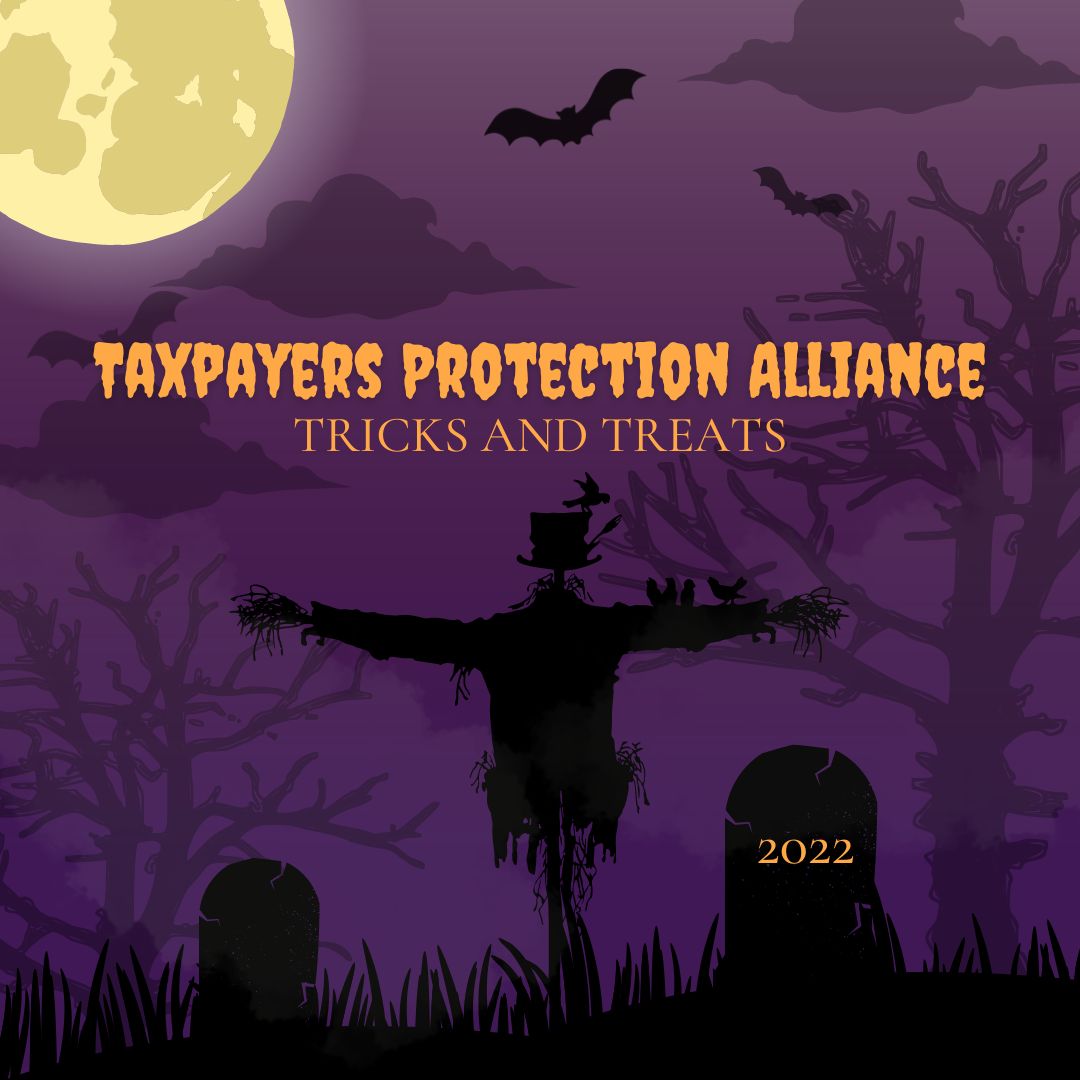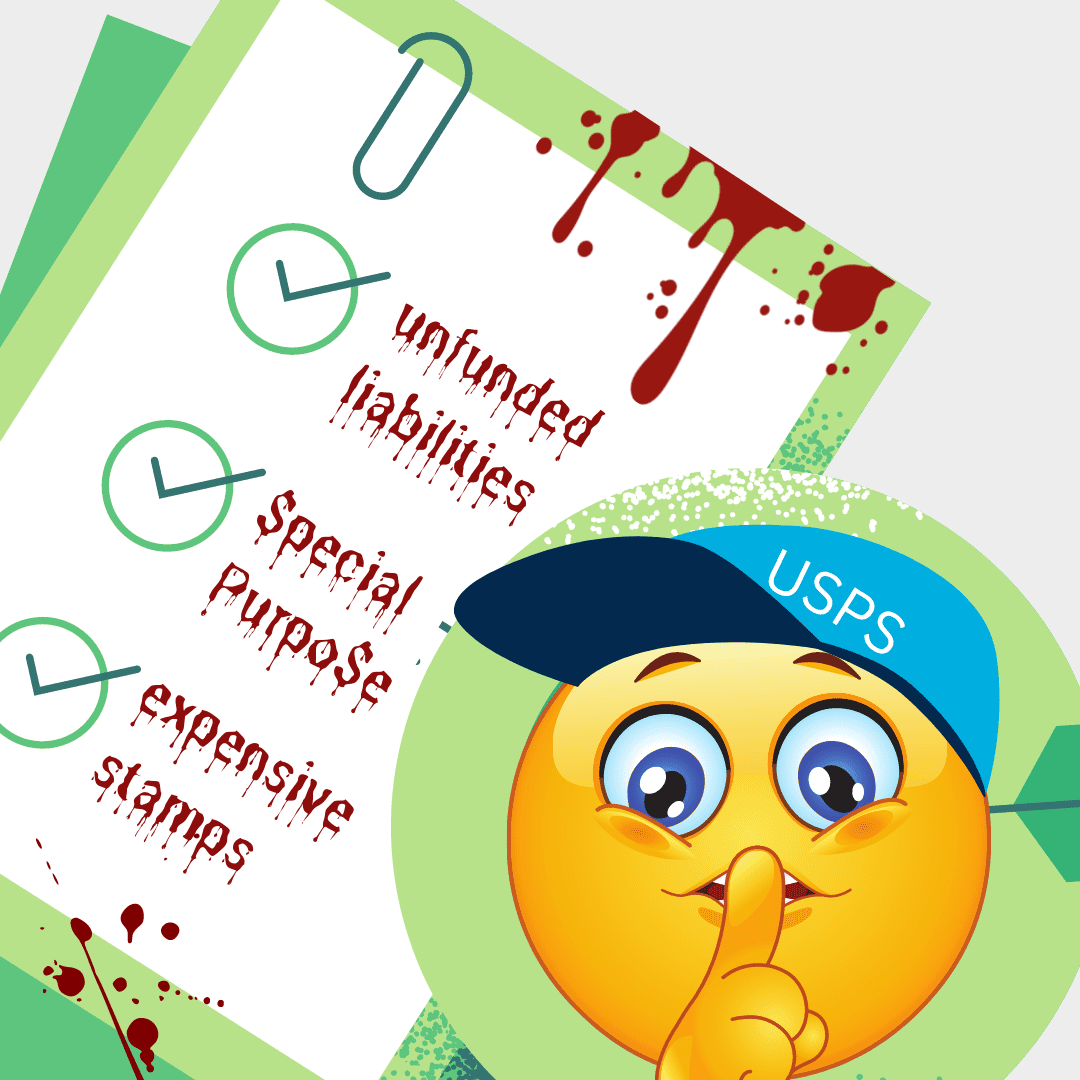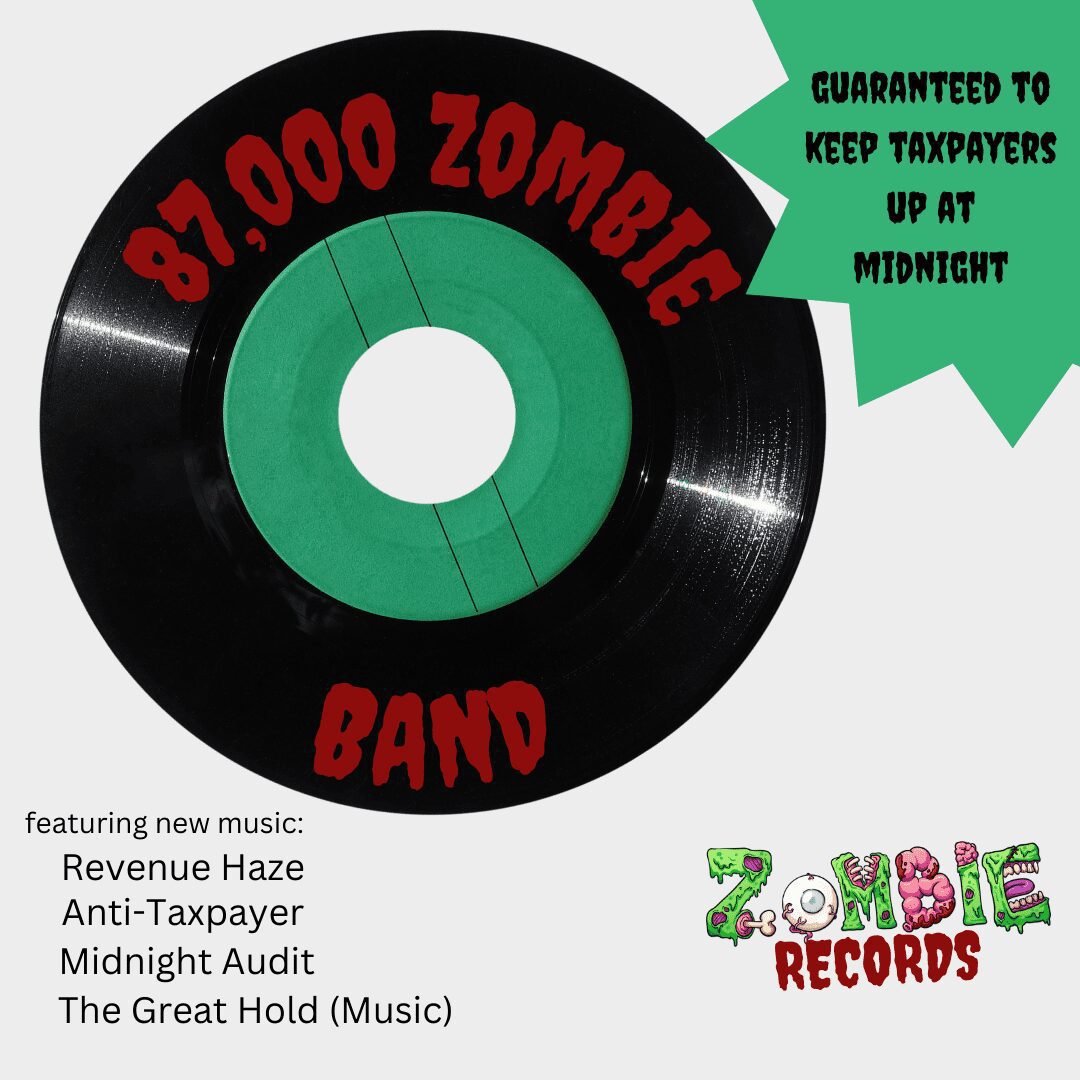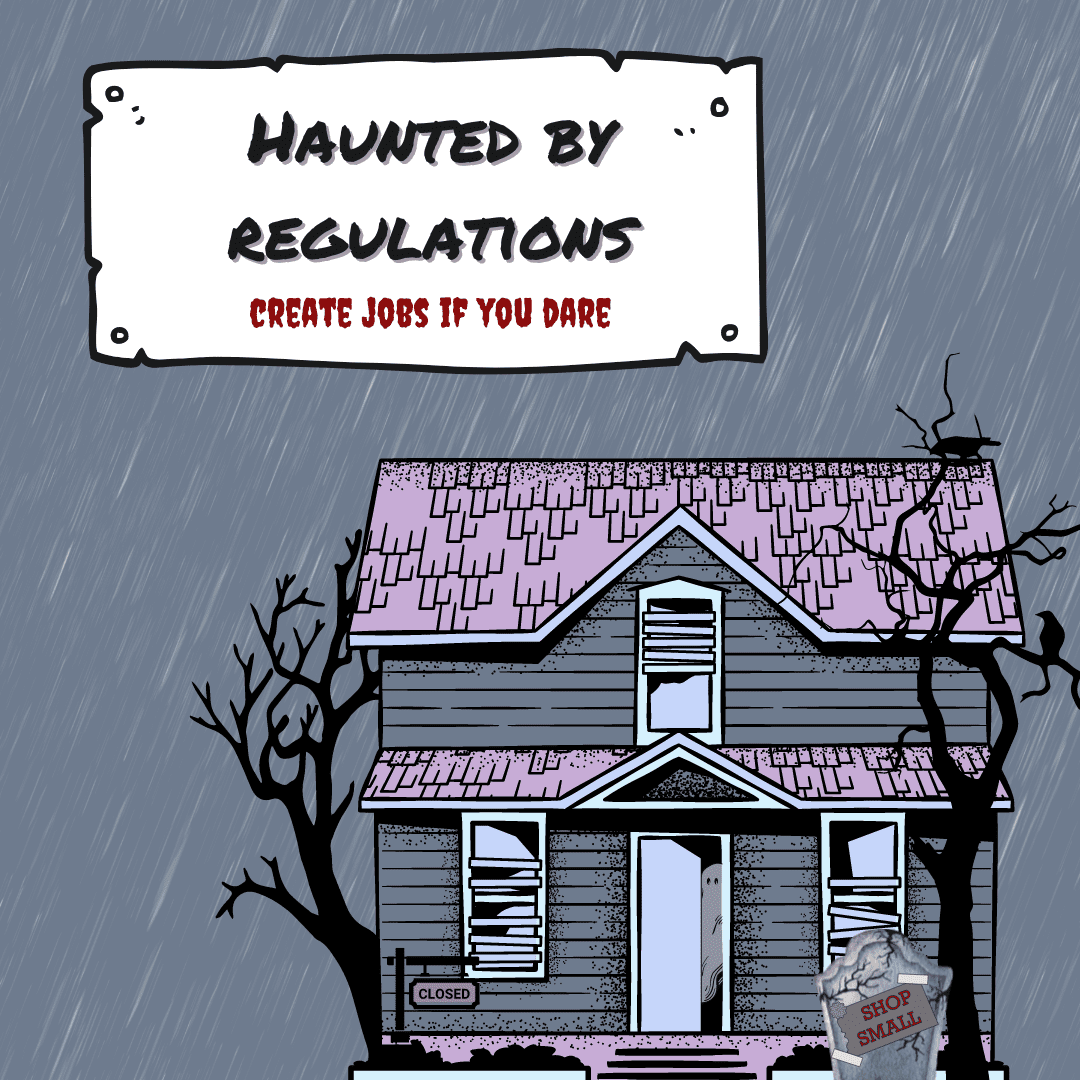
Tricks and Treats 2022
Taxpayers Protection Alliance
October 25, 2022
On Halloween night, kids dressed as killer clowns showing their “It” factor, will go from house to house with their barely costumed parents demanding their sugary due. (Most) households are more than happy to oblige, even though frightening inflation has made candy 13 percent more expensive than usual. Another visitor, though, will demand far more than half-melted Reese’s Peanut Butter Cups. Uncle Sam racked up a Cloverfield-sized $1.4 trillion dollar deficit in fiscal year 2022, and any fiscal reform looks shaky at best. Public officials have convinced themselves that invading Americans’ bank accounts and snatching their savings is preferable to cutting spending, despite the clear pitfalls of that approach. Don’t scream…until you’ve taken a gander at this year’s Taxpayer Tricks and Treats from the Taxpayers Protection Alliance (TPA).


The Postal Service Should be “A Quiet Place” on Sundays
Policymakers are oblivious to the U.S. Postal Service’s (USPS) apocalyptic finances. America’s mail carrier has shed roughly $100 billion over the past fifteen years and carries about double that total in unfunded liabilities. The USPS has claimed over the years that its hands are tied due to a Congressional prefunding mandate that in fact has allowed the agency to gradually write off its healthcare retirement expenses over a multi-decade period. Lawmakers recently shifted these liabilities to Medicare, ensuring quite the jump scare for the next generation of taxpayers.
Large expenses remain on the agency’s books, though, including Sunday parcel deliveries. These “special purpose” trips are especially costly for the agency because workers are paid overtime and trucks are making dedicated trips for just one category of mail. The agency should end these monstrous costs and end Saturday delivery as well which could save taxpayers $2-3 billion per year. Hopefully lawmakers and postal leadership can at least hear taxpayers and consumers’ calls for reform.
New, Bloated IRS Feeds on Your Fears Rather than Brains
The U.S. debt is floating to new heights, surpassing $30 trillion as lawmakers and the Biden administration keep feeding trillion-dollar deficits to the country. Public officials are determined to further inflate this red-ink-filled balloon while giving the Internal Revenue Service (IRS) more funding and powers to feed on taxpayers’ worst fears. The IRS is getting a $80 billion shot in the arm over the next decade. This will embolden the IRS to hire 87,000 new agents which, contrary to the Biden administration’s claims otherwise, will result in more audits of struggling American households. As Heritage Foundation senior research fellow Rachel Greszler notes, “increasing recent audit rates 30-fold for taxpayers making over $400,000—including 100% audit rates on taxpayers with incomes over $10 million—still would fall more than 20% short of raising the estimated $35.3 billion in new revenues in 2031.”
A likely target to fill in that remaining gap will be some of the poorest filers in the country, who already face higher-than-average audit rates. These low-income Americans are easy for the IRS to audit because they don’t have the time and resources to fend off agency investigations. IRS agents may think it Pennywise to target taxpayers down on their luck, but the truth is that spending reductions need to happen for the federal government to get back into the black.


Cybersecurity (Un)awareness, or.... There’s Someone Inside Your House
If it’s late at night and you hear strange sounds and footsteps, it’s probably your cat plotting something bad. The real threat lies not in the dead of night or underneath your bed, but from your smartphone and computer. A zombie army of shady developers and hackers regularly launch apps that, if downloaded, can haunt devices forever and even drain bank accounts.
App store marketplaces have kept this problem at bay by restricting some third-party developers from their stores, but they may soon lose this ability if the Open App Markets Act (OAMA) becomes the law of the land. This misguided piece of legislation would force tech companies operating app marketplaces to include third-party developers, even if companies have legitimate concerns about the safety of these developers’ products. Fortunately, October is Cybersecurity Awareness Month, and the Taxpayers Protection Alliance Foundation recently hosted its “Tricks and Treats of Cybersecurity” event to educate lawmakers about ghoulish anti-tech policies. Hopefully, Congress doesn’t need an Ouija board to figure out the right thing to do.
Halloween Kills... and so do Misguided Drug Policies
Plenty of horror film buffs dread an encounter with Michael Myers, but the vast majority of people will not meet their end with a large butcher knife or chainsaw. The grim reaper mostly makes his rounds via heart disease and cancer; each is responsible for around 600,000 annual deaths. While many of the root causes for these maladies are preventable via lifestyle changes (e.g., healthier eating, more exercise, less smoking), an array of life-extending medications has come to market over the past few decades. Food and Drug Administration (FDA) policies have made this process far more difficult than it needs to be, ensuring that drugs cost more than $2 billion on average to bring to market and take more than a decade to garner agency approval.
And even once these lifesaving drugs are on the market, patients have a hard time obtaining them because they are not available over the counter. An increasing body of evidence shows that statin medications not only significantly reduce the risk of heart attacks, but also reduce, “the risk of developing various cancers, and improve…the outcomes for cancer patients.” Meanwhile, side-effects are minor and resolve once patients stop treatment. Yet, statins are unlikely to get over-the-counter status anytime soon to the detriment of millions of patients. In the meantime, though, let’s hope trick-or-treaters can put their cholesterol fears aside while they enjoy their hard-earned candies.


The FDA’s Malignant Vaping Rules
When evidence began to accumulate that vapes are 95 percent safer than tobacco products (such as cigarettes), current and former smokers envisioned receptive regulators paving the way for widespread access. But often, reality is far grislier than the aspirations of activists. The FDA has been determined to make it as difficult as possible for smokers to access these life-saving products. The agency has denied several companies’ applications to sell flavored vapes, even though, as Reason editor Jacob Sullum notes, “former smokers who have switched to vaping overwhelmingly prefer nontobacco flavors, and the FDA acknowledges that ‘electronic nicotine delivery systems’…hold great promise as a harm-reducing alternative to cigarettes.”
Unfortunately, federal and state governments care more about chasing imaginary demons than real ones. Juul is paying a nearly $500 million settlement “in a multistate agreement to settle numerous allegations (without admitting wrongdoing) related to youth vaping.” These large legal and regulatory costs will inevitably be borne by adult vapers. There are about 4 times as many adult vapers as teenage vapers, and it is up to regulators to make sure that adult smokers have all options at their disposal to quit. It’s time for the FDA to quit demonizing vaping.
The F-35 Program is a Real American Horror Story
Like the creepy antagonists of American Horror Story, wasteful government spending is often hidden in plain sight and shielded by sycophants. The $1.7 trillion F-35 program has long overstayed its welcome in the haunted halls of Congress, which could really use a poltergeist. In April, a grim Government Accountability Office (GAO) report noted that F-35 production is ten years behind schedule and is still not meeting most of its reliability and maintainability goals. Engine deliveries have been chronically late due to quality issues, and “the raw material used in production was manufactured by an incorrect method.” It doesn’t take a rocket scientist (or Dr. Frankenstein) to ensure decent oversight in exchange for horrifically high contract fees.
To make matters worse, public officials have called for more money to be spent on the engine production process. The push from the administration and certain officials in the military and Congress would create an Adaptive Engine Transition Program (AETP). This would be an incredibly costly endeavor and would also make little sense from a practical perspective. Instead of spelunking ever deeper into this boondoggle, lawmakers should stick to the sunlight and banish this Pentagon boogeyman from appropriations.


In Baltimore, Independent Oversight is No Floating Apparition
In Charm City, politicians’ misdeeds are even more common than ghost sightings at the Lord Baltimore Hotel. Earlier this year, the city’s top prosecutor, Marilyn Mosby, was indicted on federal charges of perjury and the filing of false loan applications related to the purchase of two Florida vacation properties. Nearly all Baltimoreans can name convicted former mayor Catherine Pugh’s book (“Healthy Holly”), the sales of which she used to paper over a pay-to-play scheme.
Fortunately, Baltimore Inspector General (IG) Isabel Cumming is there to keep the demons at bay and hold officials accountable. Her office’s investigative activities were key to bringing both Pugh and Mosby to justice, and Cumming shows no signs of slowing down. Since she took office in 2018, her office has identified more than $14 million in savings and waste avoidance. But not everyone is thrilled with the IG’s work, and politicians have tried to rein Cumming in via an IG Advisory Board filled with officials who could conceivably become targets of investigation by the IG. In other words, the ghouls are telling the Ghostbusters how to do their jobs.
Fortunately, citizens will soon get to vote on a charter amendment that will wrestle control of the Oversight Board away from problematic officials. New board participants would include randomly selected city residents, as well as certified accounts and fraud examiners. Hopefully, independent IG oversight floats voters’ boats. If the ballot initiative passes, quoth the raven about a compromised IG Advisory Board, “nevermore.”


Politicians Allow Flying Dutchman to Make Port
The Flying Dutchman may have been stuck at sea for eternity, but the ghost ship’s travails are nothing compared to foreign vessels haunted by the Jones Act. This cobweb-covered law mandates that goods that traverse between U.S. ports travel on ships built, owned, flagged, and crewed by Americans. These needless restrictions supposedly shore up domestic shipping despite evidence that that the Act has actually harmed U.S. shipbuilding competitiveness due to regulatory compliance issues. The groups most harmed by the Jones Act, though, are the natural disaster victims in need of supplies readily held by foreign ships.
Puerto Rico faced critical gas shortages after Hurricane Fiona ravaged the island territory, and U.S. ships were unable to replenish supplies in short order. Fortunately, Secretary of Homeland Security Alejandro N. Mayorkas approved a waiver to allow the overseas delivery of liquified natural gas to suffering residents. As much of a “treat” this was, these tortured souls should not have to rely on the good graces of the Departments of Homeland Security, Energy, and Transportation for restrictions to be lifted. Policymakers should leave trade protectionism marooned on a (non-hurricane ravaged) island.
Poltergeist David Weil Banished from Department of Labor
Once a poltergeist moves in, no amount of incantations, holy water, nor earnest pleas will convince the ghoul to move on. Many prospective agency appointees pose a similar nuisance. And, without a concerted advocacy push, these political poltergeists are bound to overstay their welcome. Fortunately, the Senate listened to watchdog groups such as TPA and voted to keep Brandeis University economist David Weil away from the Labor Department. The agency is already haunted enough with bad ideas, and if Weil became the head of the agency’s wage and hour division, policies would go from bad to worse for small businesses and gig economy workers.
Dr. Weil is known for sounding the alarm about an increasingly “fissured workplace,” the idea that corporations are getting ahead through contracting, outsourcing, and franchising to the detriment of workers. If he had become a federal wage regulator, Weil would have likely tried to narrow the definition of “independent contractor” to force millions to accept a status they do not want nor need. During his first go-around at the DOL, Weil opted to define “independent contractor” to exclude a large majority of workers despite their preferences or industry realities. Thanks to a sustained advocacy campaign, workers were spared from the specter of Weil’s failed ideas.


The scares just keep coming for taxpayers. Red ink splatters across appropriations, giving rise to zombie programs suffering mission creep. TPA will do everything it can to keep Americans safe from “living dead” earmarks and politicians’ spooky plans.
